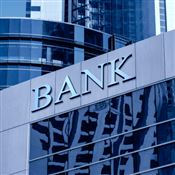How Online Savings Accounts Work
Ad Disclosure: This article contains references to products from our partners. We may receive compensation if you apply or shop through links in our content. This compensation may impact how and where products appear on this site. You help support CreditDonkey by using our links.
Why do online savings accounts offer higher interest rates than big banks? Find out if online banks are FDIC-insured before switching.
 |
| © CreditDonkey |
Online savings accounts are a good idea for almost anyone looking for a savings vehicle. Online savings accounts usually offer higher interest rates than traditional savings accounts, which helps your money grow more quickly. In addition, banking online is generally more convenient.
How Online Savings Accounts Work
You deposit money into your account. Then banks lend this money to customers through personal and business loans. The borrower pays interest on their loan to the bank. Online banks offer higher interest rates on your savings because they do not need to maintain physical branches.
Below we detail more of the key differences between online savings and traditional savings so you can determine which is best for you.
You can withdraw your money from an online savings account at any time. Just be aware that some banks may charge a withdrawal fee or have restrictions on how often you can make a withdrawal.
Online Savings vs Traditional Savings Accounts
Here's what you'll need to consider when choosing which type of savings account to open:
Annual Percentage Yields
Online savings accounts usually have higher APYs than traditional banks, ranging from1.5% to even 2%. With the power of compounding interest, your balance would grow a lot more quickly.
On the other hand, traditional savings accounts usually offer rates below 1%, the average being about 0.1% as of early 2020.
Fees & Service Charges
While some online savings accounts advertise no monthly service fees, keep in mind that those fees are usually waived only if you're able to keep a minimum balance. However, many traditional savings accounts do this as well.
Check with traditional banks and online banks to see what fees they charge and how you may get certain fees waived.
Application Process
Most traditional banks now let you apply for an account on their website as well as at physical branches. Online banks will guide you through a similar, straightforward process on their website.
Whether you apply online or in person, the personal info required is usually the same. You'll need a government-issued ID, your SSN, and a mailing address.
Average time of account approval will depend on the bank, though it's typically quick. Approval can take anywhere from 10 minutes to 1 day, with online banks usually making a quicker approval.
Required Opening Deposit
Many savings accounts, whether traditional or online, require you to deposit money into the account to officially open it. How much you need to deposit depends on the bank (some require as little as $1). Research each bank to learn what amount is required and if they allow a grace period to make the opening deposit.
Required Minimum Balance
The required minimum balance is the amount you need to have in your account to keep it open. If you don't maintain that amount, you could face a fee. Don't try to open a new online savings account if you do not have enough funds to meet the bank's minimum deposit requirement.
Transfers & Withdrawals
Both online banks and traditional banks are required to limit the number of transfers and/or withdrawals that customers make from a savings account (for transfers, usually no more than 6 per month).
Online banks may also take slightly longer to process transfers and withdrawals. Learn each bank's transfer/withdrawal policies and what fees you might incur by exceeding the limit.
Deposits
As you might expect, deposits are slightly easier with a traditional savings account. You can stop by your nearest branch and deposit a check or cash in just a few minutes.
Online banks require a few more steps. You can deposit into a traditional bank to transfer over, use an ATM that works with your bank, or buy a money order, among other options.
Many banks, whether online or traditional, belong to an ATM network (such as AllPoint or Money Pass) that lets you deposit money into your account even if it's not owned or operated by your bank. However, be aware of any fees you may incur by using any foreign ATMs.
Customer Service
Customer service is another area where traditional banks may outshine online banks. With traditional banks, you can interact face-to-face with tellers to discuss your banking needs.
While online banking does not provide that option, some online banks still provide impressive customer service via the phone or chatrooms. Check the reviews for customer service for any bank you are considering for a savings account.
Product Offerings
Traditional banks may also have the advantage when it comes to selection of financial products, like mortgages, auto loans, insurance policies, and more. Many online banks specialize in just a few types of accounts at most. If you're hoping to bundle several products from the same institution for easier banking, consider a traditional bank instead.
Most online savings accounts are insured by the FDIC in the same way that traditional banks are. Your deposits will likely be insured for up to $250,000. However, not all online banks offer FDIC protection, so be sure to check your bank's policy.
How to Open an Online Savings Account
Once you've decided to open an online savings account, here's how you can get your account up and running:
- Choose your bank. Research the terms and yields of different online savings accounts to find one that fits your needs.
- Gather your documents. This includes a government-issued ID, your Social Security number, and proof of residence/mailing address.
- Submit an application. Fill out an application online with your personal information.
- Fund your account. Transfer funds into your online savings account and include at least the minimum balance amount.
Best Online Savings Accounts
Not all online savings accounts are the same. It would be worth your while to compare the terms and offerings of each bank where you are considering opening an online savings account.
Here are some of the more popular online savings accounts today:
High-Yield Savings Premier - 5.31% APY
- No account activity or maintenance fees
- $500 minimum opening deposit
- FDIC insured
Discover® Online Savings - $200 Cash Bonus
To qualify for Bonus: Apply for your first Discover Online Savings Account, enter Offer Code CY624 at application, deposit into your Account a total of at least $15,000 to earn a $150 Bonus or deposit a total of at least $25,000 to earn a $200 Bonus. Qualifying deposit(s) may consist of multiple deposits and must post to Account within 45 days of account open date. Maximum bonus eligibility is $200.
What to know: Offer not valid for existing or prior Discover savings customers, including co-branded, or affinity accounts. Eligibility is based on primary account owner. Account must be open when bonus is credited. Bonus will be credited to the account within 60 days of the account qualifying for the bonus. Bonus is subject to tax reporting. Offer ends 09/12/2024, 11:59 PM ET. Offer may be modified or withdrawn without notice. See advertiser website for full details.
Discover® Online Savings - $150 Cash Bonus
To qualify for Bonus: Apply for your first Discover Online Savings Account, enter Offer Code CY624 at application, deposit into your Account a total of at least $15,000 to earn a $150 Bonus or deposit a total of at least $25,000 to earn a $200 Bonus. Qualifying deposit(s) may consist of multiple deposits and must post to Account within 45 days of account open date. Maximum bonus eligibility is $200.
What to know: Offer not valid for existing or prior Discover savings customers, including co-branded, or affinity accounts. Eligibility is based on primary account owner. Account must be open when bonus is credited. Bonus will be credited to the account within 60 days of the account qualifying for the bonus. Bonus is subject to tax reporting. Offer ends 09/12/2024, 11:59 PM ET. Offer may be modified or withdrawn without notice. See advertiser website for full details.
CIT Bank Platinum Savings - 5.00% APY
- 5.00% APY with a balance of $5,000 or more
- 0.25% APY with a balance of less than $5,000
- $100 minimum opening deposit
- No monthly maintenance fee
- Member FDIC
Online Savings Account - 4.20% APY
$0 minimum opening deposit. No minimum balance requirement. No fees to open or maintain account.
UFB Portfolio Savings - Earn up to 5.15% APY
High Yield Savings - 4.75% APY
$0 minimum opening deposit. No minimum balance requirement. No fees to open or maintain account.
Online Savings Account - Earn 4.25% APY
- No fees
- No minimum opening deposit
- No minimum balance required
High Yield Savings Account - 5.22% APY
- $1 minimum deposit
- No fees
- 24/7 online access to funds
- Deposits are FDIC insured through Third Coast Bank
Popular Direct Savings Account - 5.05% APY
- 5.05% APY
- $100 Minimum Opening Deposit
- FDIC Insured
Bottom Line
Online savings accounts can provide several advantages over traditional savings accounts, including high APYs, mobile convenience, and sometimes lower fees. Compare different terms and conditions to find an online bank that meets your needs.
When shopping around, be sure to see what APY the bank offers because that will help you grow your money. But also factor in other fees and restrictions that may offset your earnings.
Write to Rebecca M at feedback@creditdonkey.com. Follow us on Twitter and Facebook for our latest posts.
Note: This website is made possible through financial relationships with some of the products and services mentioned on this site. We may receive compensation if you shop through links in our content. You do not have to use our links, but you help support CreditDonkey if you do.
|
|
|










